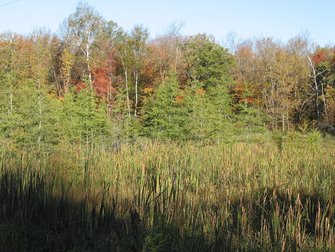Traditional naturopathy

What exactly is traditional naturopathy and how does it differ from either naturopathic doctors or medical doctors?
It's the word traditional in the title that gives it all away. Traditionally, naturopathy was not called that at all. It was a system of helping people return to health or learn to maintain health by teaching them to eat healthy foods, exercise regularly and use herbs and water therapy for restoring health. It could be said to have originated back with the ancient writers like Hippocrates. In reality, it existed much earlier. Any person who was versed in the use of herbs, water or foods for healing would have been the forerunner to today's traditional naturopath, and this would include prehistoric peoples, hunter-gatherers, herbalists, country doctors of old, etc. The basis tenet of traditional naturopathy should sound familiar, "above all, do no harm". But unlike today's physician, traditional naturopaths don't use or need machines, invasive tests or chemicals to help people help themselves on their walk toward better health. Traditional naturopaths don't diagnose, prescribe or treat an illness and if you think about it, this makes sense. The traditional naturopath is a person's guide to information about safe, healthy ways to change a lifestyle to bring about better health. The traditional naturopath does not do anything to you or even for you, except to provide information about ways you can improve your own situation. Empowerment is a word that describes what a traditional naturopath does, empowers you to take charge of your life and health or that of your animals and to gain back the confidence to make decisions about your health and your life. Traditional naturopaths may even teach plant identification, preparation of herbal remedies and related topics so that you can further take control of your own healing journey.
It's the word traditional in the title that gives it all away. Traditionally, naturopathy was not called that at all. It was a system of helping people return to health or learn to maintain health by teaching them to eat healthy foods, exercise regularly and use herbs and water therapy for restoring health. It could be said to have originated back with the ancient writers like Hippocrates. In reality, it existed much earlier. Any person who was versed in the use of herbs, water or foods for healing would have been the forerunner to today's traditional naturopath, and this would include prehistoric peoples, hunter-gatherers, herbalists, country doctors of old, etc. The basis tenet of traditional naturopathy should sound familiar, "above all, do no harm". But unlike today's physician, traditional naturopaths don't use or need machines, invasive tests or chemicals to help people help themselves on their walk toward better health. Traditional naturopaths don't diagnose, prescribe or treat an illness and if you think about it, this makes sense. The traditional naturopath is a person's guide to information about safe, healthy ways to change a lifestyle to bring about better health. The traditional naturopath does not do anything to you or even for you, except to provide information about ways you can improve your own situation. Empowerment is a word that describes what a traditional naturopath does, empowers you to take charge of your life and health or that of your animals and to gain back the confidence to make decisions about your health and your life. Traditional naturopaths may even teach plant identification, preparation of herbal remedies and related topics so that you can further take control of your own healing journey.
So what about those other naturopaths? Naturopathic doctors (and other titles that include the word naturopath) actually have more in common with medical doctors (physicians) than traditional naturopaths. They will do tests, diagnose conditions, perform minor surgeries and prescribe treatments. This is quite similar to what a medical doctor does, altho a naturopathic doctor will recommend supplements, herbs or other therapies that medical doctors are not familiar with.
While there are reasons to consult with traditional naturopaths, medical doctors or naturopathic doctors, the differences need to be clear so that people can make educated decisions about which practitioner they consult.
And it's not necessarily a one-stop-shop. If you go to a medical doctor and receive a diagnosis of an illness, you are free to also consult with a traditional naturopath to learn about alternatives or complementary ways to deal with the problem or support the body as it returns to balance and health. Alternatives are therapies that take the place of some other treatment option while complementary implies that the therapy will exist at the same time as another treatment is being used. An alternative to an antibiotic for the common cold might be garlic, echinacea or even thyme tea. In some cases, complementary can be a wonderful option. People going into or recovering from major surgeries seek complementary ways to boost the body's immune system and healing abilities, often shortening hospital stays and recovery times. Long term use of antibiotics (when essential) can deplete the body, kill beneficial digestive bacteria and cause other imbalances, complementary therapies might include extra vitamins and minerals (or not taking certain minerals that could interfere with absorption of the antibiotic), using yogurt or probiotics to restore intestinal flora and using essential oils to help balance emotional health so healing can take place.
On the reverse, a traditional naturopath may recommend you see a medical doctor for a check up to make sure some underlying condition does not go unnoticed.
This article is not the end on the world of alternative or complementary practitioners but I hope it will give you some idea about what you can expect, or not, from a traditional naturopath. For more information, see Natural Health.
While there are reasons to consult with traditional naturopaths, medical doctors or naturopathic doctors, the differences need to be clear so that people can make educated decisions about which practitioner they consult.
And it's not necessarily a one-stop-shop. If you go to a medical doctor and receive a diagnosis of an illness, you are free to also consult with a traditional naturopath to learn about alternatives or complementary ways to deal with the problem or support the body as it returns to balance and health. Alternatives are therapies that take the place of some other treatment option while complementary implies that the therapy will exist at the same time as another treatment is being used. An alternative to an antibiotic for the common cold might be garlic, echinacea or even thyme tea. In some cases, complementary can be a wonderful option. People going into or recovering from major surgeries seek complementary ways to boost the body's immune system and healing abilities, often shortening hospital stays and recovery times. Long term use of antibiotics (when essential) can deplete the body, kill beneficial digestive bacteria and cause other imbalances, complementary therapies might include extra vitamins and minerals (or not taking certain minerals that could interfere with absorption of the antibiotic), using yogurt or probiotics to restore intestinal flora and using essential oils to help balance emotional health so healing can take place.
On the reverse, a traditional naturopath may recommend you see a medical doctor for a check up to make sure some underlying condition does not go unnoticed.
This article is not the end on the world of alternative or complementary practitioners but I hope it will give you some idea about what you can expect, or not, from a traditional naturopath. For more information, see Natural Health.

